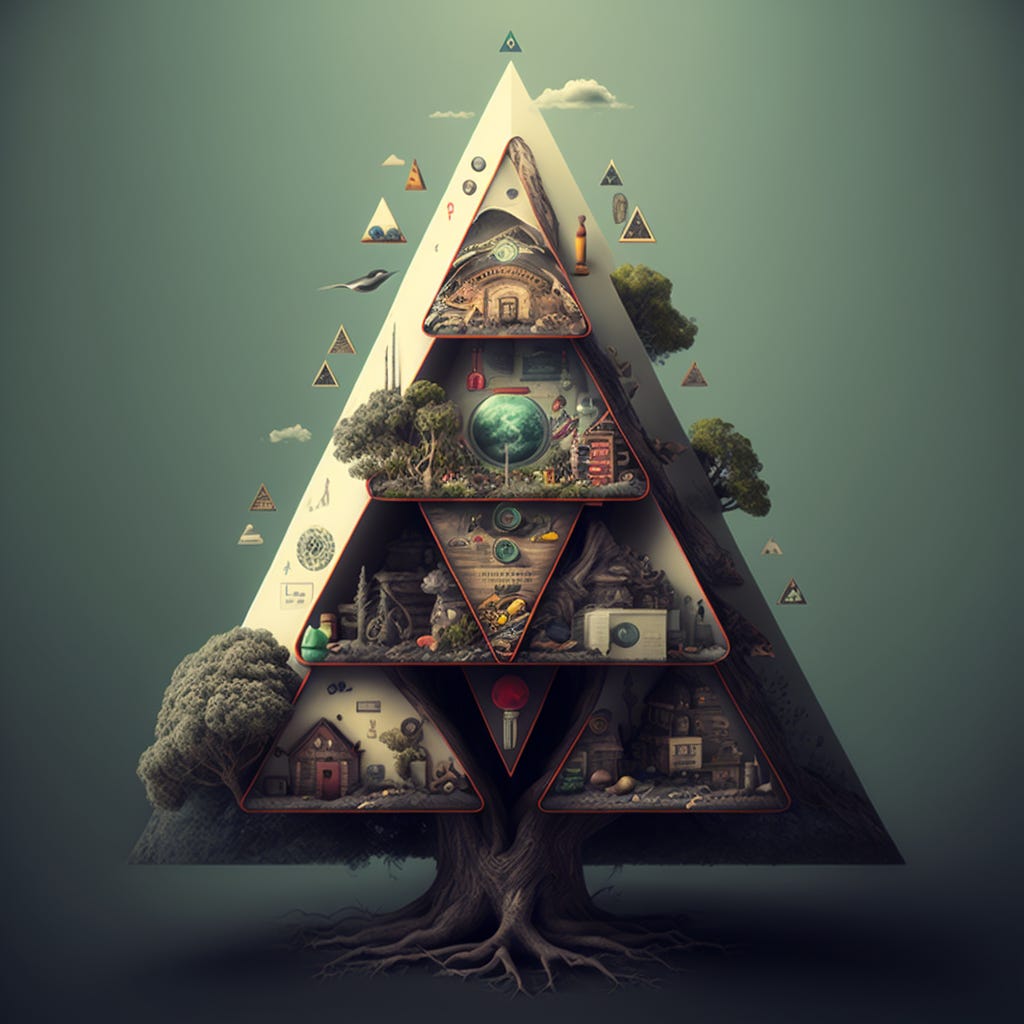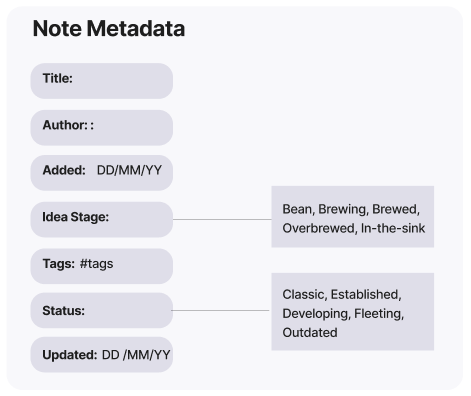Maximizing Learning and Synthesis
The Benefits of Epistemic Status
Labeling the stages of your ideas allows you to make them tangible so that you may keep track and evolve them. By Labeling the stage of an a idea, it helps you to quickly identify which ideas need to be worked on, which ones are ready to be consumed, and which ones should be archived.
The labeling systems listed below revolve around the concept of epistemic status:
The epistemic status is a short disclaimer at the top of a post that explains how confident the author is in the contents of the post, how much reputation the author is willing to stake on it, what sorts of tests the thesis has passed. - Urban Dictionary
Tracking the stages of your own ideas
Epistemic status of ideas based Nitin Pai’s version which is based on coffee ☕.
Bean : Implies a new, undeveloped idea. It could be way off base, or it can be a revolutionary new idea.
Brewing: Implies that you have started working on the idea, but it is not ready for consumption.
Brewed: An idea that is ready for consumption.
Over-brewed: A previously brewed idea that has been revised or modified. The modification or revision might have improved or made it worse.
In-the-sink : A discarded note — because it is outdated, or just doesn’t work.
An alternative status of ideas by Maggie Appleton based on the Digital Garden concept:
Seedlings: for very rough and early ideas
Budding: for work that has been cleaned up and clarified.
Evergreen: for work that is reasonably complete (though they still need to be tended over time).
Weeds: ideas that are in urgent need of tending. These need to be revised or cut.
Tracking the Stages of the ideas of others
Classic (Lindy Effect): Ideas that are well-established, widely accepted and have stood the test of time. Focus on these.
Established : Ideas that have been around for some time and have gained a certain level of acceptance.
Developing : New and emerging ideas that are gaining acceptance, but are not yet fully established.
Fleeting: Ideas that are temporary, trend-based and lack long-term value.
Outdated : Ideas that are no longer relevant.
When you are the consumer of the ideas of others, you should spend most of your time on ideas that have withstood the test of time. 90% of your time should be spent on reading classical books versus reading tweets which are on the fleeting / developing side of the spectrum.
Sample note metadata
The Benefit of Tracking Idea Stages
The benefits of tracking your ideas and the ideas of others includes:
Organizing and categorizing your ideas for easy reference and retrieval.
Make your ideas more tangible and concrete. This is a crucial step in making them a reality.
Identifying which ideas need further development and which are ready to be shared or implemented.
Allows you to incorporate your ideas into a larger note-taking or Zettelkasten system .
Regardless of the system you choose, the goal is to spend your time on learning and working on the things that matter.




